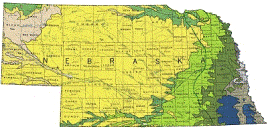United States Geological Survey

United States Geological Survey: Staff Publications
Document Type
Article
Date of this Version
2014
Citation
American Currents Vol. 39, No. 3
Abstract
Mid-February in the Gulf of Mexico and a timeless ritual is about to repeat itself for perhaps the millionth time. Some mysterious signal, possibly increasing day length, flips an internal switch, feeding stops, and the homeward migration begins for the Gulf Sturgeon (Acipenser oxyrinchus desotoi). From far flung places along the Gulf Coast, Gulf Sturgeons start heading back to their natal rivers – they know the way instinctively. Maybe they seek out the special chemical taste of their home river, imprinted at hatching. Or perhaps the ultrasensitive electric organs decorating the underside of the snout can follow the map of the earth’s magnetic field. Either way, time to make a beeline for the welcoming waters of the Suwannee River, or maybe the Apalachicola, Choctawhatchee, or one of four other spawning rivers. Some of the adults are on a special mission – time to spawn, time to perpetuate the species. Mature males form the first wave in this homebound marathon, eager to get to the spawning grounds, eager to be the first to greet ready females with a series of sharp clicking sounds. Only spawning once each three years, females laden with large black eggs demure, taking their time, arriving in mid to late March, a month behind the early males. But most sturgeons, juveniles and immature adults not ready to spawn, are simply heading home. Not prompted by the spawning urge, they are just following the ancient annual cycle of intense winter feeding in the Gulf, followed by several months of fasting and R&R in the river.


Comments
U.S. Government Work.